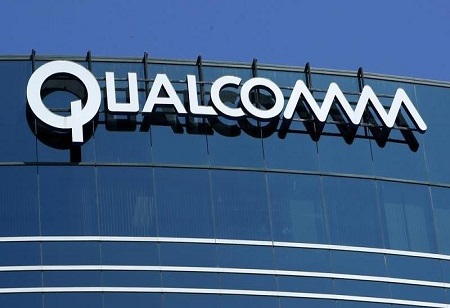
Qualcomm reported 37% rise in its revenue

 Chip-maker Qualcomm has reported a 37 per cent rise in its revenue in the June quarter despite challenging macro-economic environment, announcing the extension of its patent license agreement with Samsung for its Galaxy devices.
Chip-maker Qualcomm has reported a 37 per cent rise in its revenue in the June quarter despite challenging macro-economic environment, announcing the extension of its patent license agreement with Samsung for its Galaxy devices.
The company posted $10.93 billion in revenue for its third quarter (April-June period) and its handset business grew 59 per cent to $6.15 billion driven by the strength of its Snapdragon product portfolio, especially in the premium and high smartphone tiers.
"We are pleased to report strong quarterly results, with record QCT Automotive and IoT revenues in a challenging macroeconomic environment," said Cristiano Amon, President and CEO of Qualcomm.
"We are also excited to announce the extension of our patent license agreement with Samsung and the expansion of our strategic partnership to deliver leading premium consumer experiences for Samsung Galaxy devices," Amon added.
Qualcomm said it's still on pace for its handset business to grow slightly below 50 per cent this year.
Akash Palkhiwala, CFO of Qualcomm, said that they look forward to global 3G, 4G, 5G handset forecast.
"We now expect calendar 2022 global handsets to decrease by mid-single-digit percentage on a year-over-year basis, including 650 million to 700 million 5G handsets. Our guidance reflects the continuation of the trends that adversely impacted handset volumes exiting the June quarter," Palkhiwala added.
IoT revenues were up 31 per cent year-over-year to $1.8 billion.
"We delivered another record quarter in automotive with revenues of $350 million with year-over-year growth of 38 per cent driven by launches with our digital cockpit products," he noted.
During the quarter, the company returned $1.3 billion to stockholders, including $842 million, or $0.75 per share, of cash dividends paid and $500 million through repurchases of 4 million shares of common stock.
Qualcomm is also "well positioned to be the company bringing advanced connectivity, data processing and intelligence to the edge, enabling cloud-edge convergence," Amon noted.